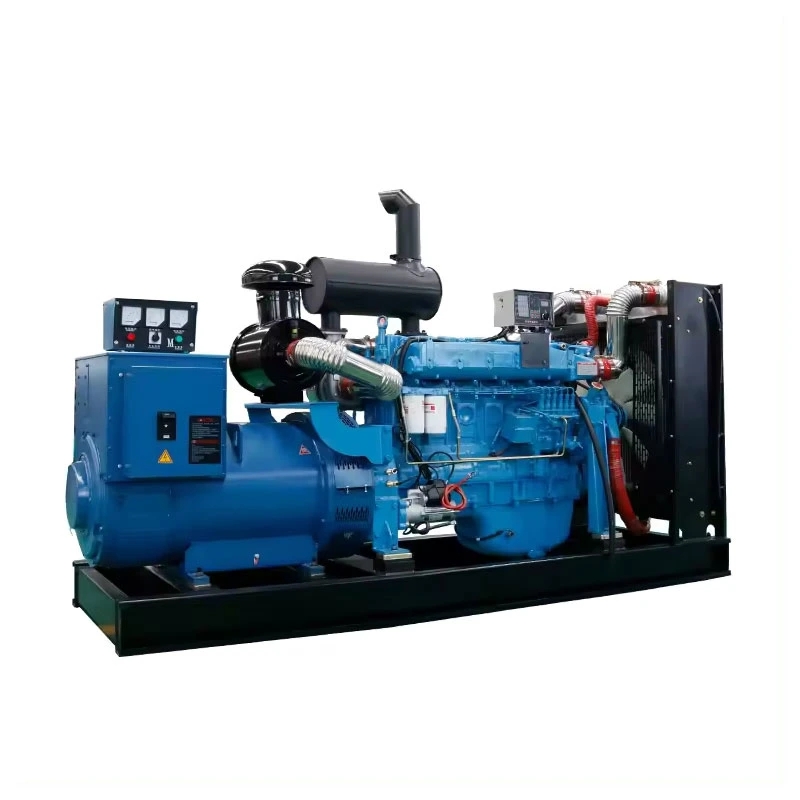Introduction
Electromagnetic Compatibility (EMC) testing is essential for ensuring that electronic devices and systems operate properly in their intended environments without causing interference to other devices. One critical aspect of EMC testing is the need for a reliable and stable power source to provide consistent and clean power during the testing process. Diesel generators have long been a popular choice for providing power during EMC testing due to their reliability, durability, and ability to deliver consistent power output. In this article, we will explore the role of diesel generators in EMC testing, their key advantages, considerations for selecting the right generator, and best practices for using diesel generators in EMC testing environments.
Role of Diesel Generators in EMC Testing
EMC testing involves subjecting electronic devices to a range of electromagnetic conditions to assess their susceptibility to interference and their ability to operate without causing interference to other devices. To accurately simulate real-world conditions, EMC testing facilities often require high-power sources that can deliver clean and stable power to the devices under test. Diesel generators play a crucial role in providing this power, as they are capable of delivering high levels of consistent power output over extended periods of time.
Key Advantages of Diesel Generators for EMC Testing
There are several key advantages to using diesel generators for EMC testing:
1. Reliability: Diesel generators are known for their reliability and robustness. They are designed to operate for long hours and can withstand heavy loads without experiencing performance degradation. This reliability is critical for ensuring that power is consistently available during EMC testing, where interruptions can lead to inaccurate results.
2. Durability: Diesel generators are built to withstand harsh environmental conditions, making them ideal for use in EMC testing facilities where they may be subjected to dust, temperature variations, and other challenges. Their rugged construction ensures that they can continue to operate effectively even in demanding testing environments.
3. High Power Output: Diesel generators are capable of delivering high levels of power output, making them suitable for powering a wide range of electronic devices and systems during EMC testing. The ability to provide consistent power output is essential for maintaining the integrity of the testing process and obtaining accurate results.

Considerations for Selecting the Right Diesel Generator
When selecting a diesel generator for EMC testing, several factors should be taken into consideration to ensure that the generator meets the specific requirements of the testing facility. Some key considerations include:
1. Power Output: The power output of the diesel generator should be sufficient to meet the power requirements of the devices under test. It is essential to calculate the total power demand of the testing setup and select a generator with a suitable power rating to ensure reliable operation.
2. Load Capacity: The diesel generator should have the capacity to handle the maximum load that may be encountered during EMC testing. Used 400kW generator for sale can lead to performance issues and potential damage, so it is important to choose a generator with a sufficient load capacity.
3. Fuel Efficiency: Diesel generators should be fuel-efficient to minimize operating costs and reduce the environmental impact of testing activities. Generators with advanced fuel management systems and efficient engines can help optimize fuel consumption during EMC testing.
4. Emissions Compliance: Diesel generators used in EMC testing facilities must comply with local emissions regulations to minimize environmental impact and ensure safe operation. Selecting generators that meet or exceed emissions standards can help mitigate potential regulatory issues.
Best Practices for Using Diesel Generators in EMC Testing Environments
To ensure optimal performance and safety when using diesel generators in EMC testing environments, several best practices should be followed:
1. Regular Maintenance: Diesel generators should undergo regular maintenance to keep them in optimal condition. This includes checking and changing oil, filters, and other components as recommended by the manufacturer to prevent breakdowns and ensure reliable operation.
2. Fuel Quality: The quality of fuel used in diesel generators can significantly impact their performance and longevity. It is essential to use clean and high-quality fuel to prevent engine contamination and maximize efficiency.
3. Proper Ventilation: Diesel generators produce exhaust gases that can be harmful if not properly ventilated. Adequate ventilation should be provided to ensure the safe operation of the generator and maintain air quality in the testing environment.
4. Monitoring and Control: Diesel generators should be equipped with monitoring and control systems to track performance metrics such as power output, fuel consumption, and engine temperature. These systems can help identify issues early and prevent potential problems during EMC testing.
Conclusion
Diesel generators play a vital role in providing reliable and consistent power during EMC testing, ensuring that electronic devices and systems are subjected to accurate and controlled testing conditions. By understanding the key advantages of diesel generators, considering important factors when selecting a generator, and following best practices for their use, EMC testing facilities can optimize their testing processes and achieve reliable results. Diesel generators continue to be a preferred power source for EMC testing due to their reliability, durability, and high power output capabilities, making them an essential component of any EMC testing facility.
